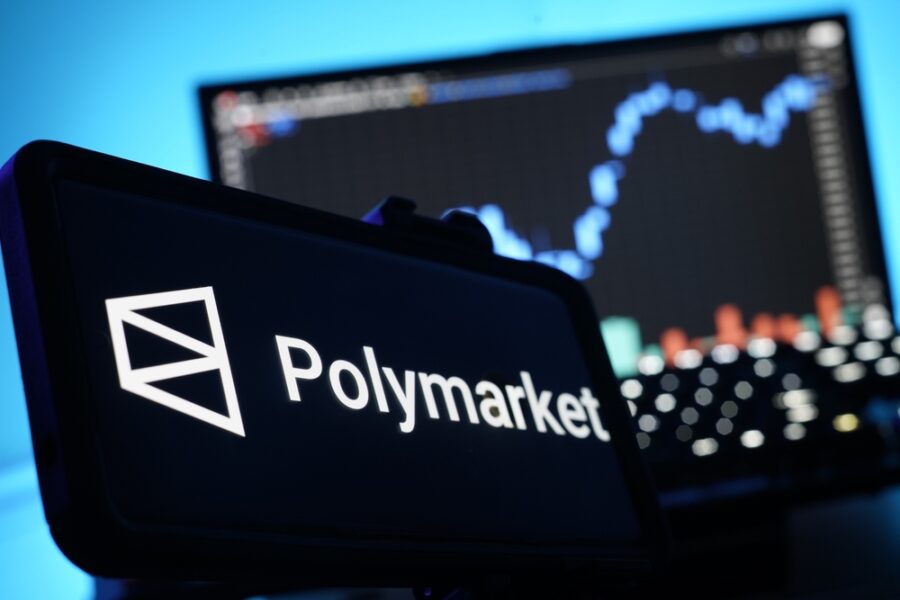Government shutdown delays Polymarket’s return to the US market

The return of the crypto prediction market Polymarket to the US has been postponed amid complications arising from the ongoing federal government shutdown, according to Front Office Sports.
The prediction market had been set to relaunch after self-certifying its sports and event contracts with the Commodity Futures Trading Commission on September 30, however the government closed the next day, which halted the review process.
Under Commodity Futures Trading Commission rules, the agency typically has one business day to object to self-certification before it becomes active. Because the shutdown began immediately after Polymarket’s filing, that review window was never completed.
A former Commodity Futures Trading Commission official told Front Office Sports, “100% yes,” when asked if the shutdown could be responsible for the delay. Another ex-Commodity Futures Trading Commission Attorney noted that the shutdown “would be an obstacle” even if not the sole reason.
Polymarket has been barred from operating in the US since 2022, following a settlement with the Commodity Futures Trading Commission that included a US$1.4 million civil penalty.
The company has since gained federal clearance through its acquisition of the regulated exchange QCX and secured up to US$2 billion in investment from the operator of the New York Stock Exchange, Intercontinental Exchange. Despite missing ten weeks of the NFL season, Polymarket continues to promote its planned US launch. The firm remains active in approximately 180 countries and partners with the NHL, alongside maintaining readiness to launch once federal operations resume.
Verticals:
Sectors:
Topics:
Dig Deeper
The Backstory
Setting the stage for a U.S. relaunch
Polymarket’s path back to the United States accelerated over the summer as the crypto prediction platform mapped a narrow, federally compliant way to resume trading at home. The company telegraphed a sports-first strategy and a phased rollout to a limited user group by late fall, signaling confidence that its regulatory groundwork would hold. Reporting that Polymarket plots US return with sports betting focus tied the timing to peak football and basketball seasons and noted a ripple effect across listed U.S. gambling peers. The shift came after Polymarket paid a civil penalty in 2022 and operated offshore, then reengaged U.S. regulators amid rising interest in event contracts following a court win that allowed rival Kalshi to list presidential election markets.
Momentum built as Polymarket opened a domestic waitlist and positioned its product at the intersection of sports engagement, on-chain settlement and federally supervised derivatives. The company aimed to fit within commodity rules rather than navigate state-by-state gaming statutes, a legal lane that has drawn attention as prediction markets mature and pressure traditional sportsbooks on price discovery and product novelty.
Licenses, filings and a new regulatory chassis
The pivotal move was Polymarket’s acquisition of QCX, a Commodity Futures Trading Commission-licensed exchange and clearing operation, a structure that created a regulated venue for event contracts. Subsequent disclosures indicated the agency issued a no-action letter on Sept. 3, greenlighting the firm to pursue listings under federal oversight. Coverage detailing that Polymarket set to relaunch in US as early as Friday outlined four filing tracks: athletic events, athletic spreads, total athletic scores and election winner contracts. Those categories mirror how event markets can be organized for compliance and surveillance.
QCX later posted documentation associated with these product sets, including materials labeled for athletic event contracts, athletic spread contracts and total score contracts. The exchange made available versions dated Oct. 1 and Sept. 30, including athletic event contract terms, athletic spread contract terms and total score contract terms, as well as their underlying references. The filings underscore the market design: standardized contracts, clear settlement criteria and surveillance hooks. Together with the no-action posture, they formed the regulatory chassis Polymarket needed to begin listing sports-linked event markets in a way intended to satisfy federal commodities law.
Timelines slip as oversight frictions surface
While initial reporting pointed to a U.S. restart as early as Oct. 3, and later by the end of November, the go-live window kept moving. The filings implied a self-certification cadence, but operational reality required the agency process to play out before user trading could begin. As optimism met bureaucracy, Polymarket continued to signal “near-term” activation, while also hedging with partnerships and distribution that would not depend solely on its standalone switch flipping at once.
The fluid timeline unfolded against a wider regulatory backdrop. State authorities and courts have tested how to treat event contracts that touch politics or resemble wagering. Inside the industry, Polymarket’s advance followed the court victory that aided Kalshi’s election markets, but resistance persists. Several states have challenged the scope of prediction markets, including New Jersey’s scrutiny of Kalshi discussed in Polymarket ties up with X as official prediction market partner. Abroad, offshore operations encountered pushback too: Colombia’s regulator ordered ISPs to block access to Polymarket for alleged unauthorized betting on elections, as detailed in Colombia’s gambling regulator orders ISPs to block Polymarket. These actions highlight the jurisdiction-by-jurisdiction tension that can complicate product rollouts, even when federal permissions appear in place.
Distribution bets: PrizePicks and X integrations
To sustain momentum and cultivate U.S. audiences while regulatory steps progressed, Polymarket leaned on partnerships that could broaden reach quickly. A multiyear tie-up with PrizePicks puts event contracts for sports, entertainment and culture inside a mainstream daily fantasy app. The arrangement, outlined in PrizePicks partners with Polymarket to launch prediction markets in the US, is notable because PrizePicks recently registered as a Futures Commission Merchant with the National Futures Association, enabling it to intermediate access to federally regulated exchanges. For Polymarket, the pairing offers distribution, liquidity seeding and incremental compliance comfort for first-time users in a supervised environment.
Polymarket also became the official prediction market partner of X, the social platform formerly known as Twitter, with plans to blend Polymarket probabilities, X’s real-time signals and Grok’s analysis. The collaboration described in Polymarket ties up with X as official prediction market partner aims to contextualize bets with news flow and sentiment, blurring lines between information discovery and position-taking. For a product that monetizes consensus and contrarian views, a high-velocity social feed can function as both a marketing channel and a liquidity machine.
Why the stakes are rising
The commercial upside is tied to user scale and market depth. Polymarket’s offshore footprint expanded rapidly, with reporting from The Block documenting a breakout year in 2024. According to that analysis, the platform drove roughly $9 billion in trading volume and counted 314,000 active traders, metrics that illustrate demand for real-time, event-linked price signals beyond traditional sportsbooks. That growth narrative is captured in Polymarket’s huge year redefines prediction markets.
In the U.S., the stakes cut several ways. For regulators, the question is whether standardized event contracts can live inside commodities law without morphing into unregulated wagering. For incumbent sportsbooks, new entrants armed with transparent odds and on-chain clearing could pull attention and liquidity from same-game parlays and props, particularly around live events. As noted when Polymarket plots US return with sports betting focus, public market reactions to prediction market headlines suggest investors are recalibrating competitive dynamics.
For Polymarket, execution depends on synchronizing filings, surveillance and user onboarding while managing political and jurisdictional risk. The QCX structure and posted contract specifications, including athletic events, athletic spreads and total scores, set the technical rails. Partnerships with PrizePicks and X aim to supply demand and context once the switch flips. The last mile remains timing, but the architecture for a federally supervised prediction market tied to sports looks largely assembled.







